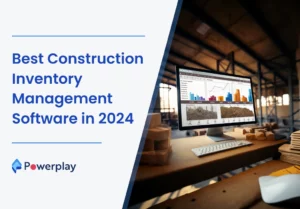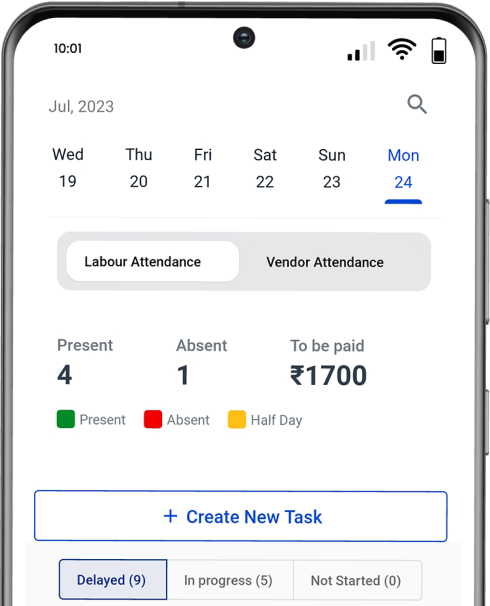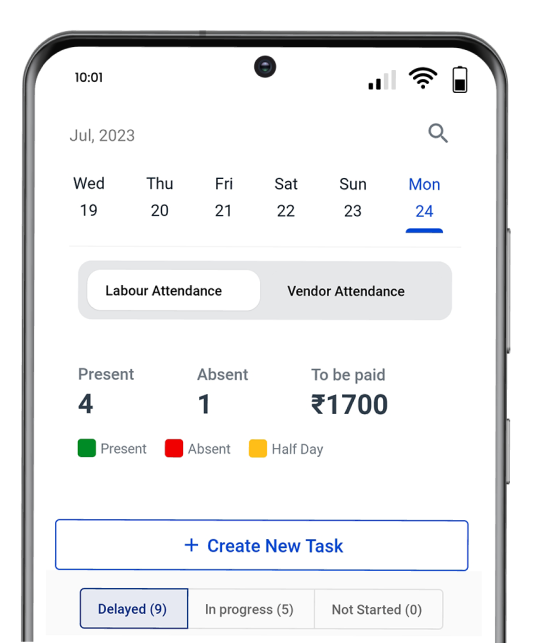What are the different types of construction jobs?
-
Kumar Abhishek Anand
- October 23, 2023

The most well-known jobs in the field of construction can be divided into three categories, including Executive, Mid-level and Special jobs:
A. Executive Jobs
Project executives are responsible for defining and implementing strategic goals, monitoring project performance and ensuring that they remain on track. Other tasks of an executive also include communication with upper management to create strategic program and project goals.
1. Civil Engineer design major construction projects. Civil Engineers conceive, design construction, oversee construction, manage, and maintain infrastructure and systems in the private and public sectors, such as airports, roads, buildings, tunnels, dams and tunnels, bridges, and wastewater treatment and water supply systems.
2. Safety Engineers are accountable for ensuring the risk and safety associated with construction projects and company activities. They actively plan, manage and implement the company’s safety programs to ensure a secure and healthy working environment.
3. Construction Managers are accountable for the entire process of the construction project. They are responsible for every construction site aspect, including managing, planning and coordinating. They are in charge of all design aspects and oversee all inventory records.
Construction Managers oversee and coordinate the construction of commercial, residential, industrial, civic, and residential structures ranging from bridges to roads, offices to factories.
4. Estimation Engineers are usually accountable for estimating the workload of specific projects. Additionally, they estimate material, labour and time requirements to calculate the total price of the work.
5. Safety/HSE managers collaborate with contractors to determine specific risks on site, including the possibility of electrocution and toxic substances, as well as levels of danger to human health and devise strategies to reduce or eliminate risks from exposure to such hazards.
Mid-level Jobs
1. Quantity Surveyor – Quantity Surveyors manage the costs of the construction project. They ensure your construction job will be completed in line with the budget. Quantity Surveyors price/forecast the cost of various materials required to complete the project. They also create tender documents, contracts and budgets, bills of quantity and other documents.
2. Project Manager supervises every aspect of the construction process in close collaboration with architects and engineers to create plans, set timelines, and calculate the cost of labour and materials. They ensure that the construction project is completed on time and within budget.
3. Architects plan to develop and execute the design of a proposed structure. They prepare feasibility reports, assess the environmental impact of projects, develop plans, estimate costs, set timelines, and oversee the construction process.
4. Building Services Engineer consults with builders and customers about their requirements and budgets. Installs or supervises building components’ construction and tests the systems to verify that they function and make any necessary adjustments.
5. Structural Engineer – Structural engineers make heavy structures such as bridges, dams, powerplants, etc. They evaluate loads and press to ensure structural stability. The responsibilities of a structural engineer also involve collaborating with contractors and directing construction workers in the field.
6. Building Inspectors ensure the safety of bridges, dams, buildings and other structures; roads and highways; and water and sewer systems. They also check electrical systems, heating, ventilation, refrigeration, air conditioning (HVACR) and plumbing systems.
7. Site Managers – Site Managers are accountable for ensuring that the construction project is finished within the budget and on time. They oversee and coordinate construction workers, choose tools and materials, perform safety inspections, and ensure the safety of construction sites and workers.
8. Safety Managers – Safety managers are accountable for monitoring the safety of workers on the site. They are accountable for ensuring the regulations and monitoring safety and health guidelines to reduce injuries. This is an enormous benefit to the safety of employees on the job site and the whole company.
Special Jobs
1. Elevator Professional build, install, maintain and replace chairlifts, elevators, escalators moving walkways, and similar equipment within structures. Elevator Installers/Repairers typically specialize in maintenance, installation, or repair work.
2. Electricians install and connect the electrical systems of new buildings and homes. Electricians usually wire the electrical system after the building has been partially constructed. They use wiring schematics and blueprints. Also, they install electronics as well as signal communications systems.
3. Plumbers install and manage the water system within the construction. This includes baths, toilets, showers, sinks, dishwashers, washing machines and more. They also can install central heating systems but require additional certifications for working with gas boilers.
4. Sheet Metal Workers are responsible for installing and sometimes manufacturing thin metal sheets for various applications. They are responsible for installing HVAC ducts on roofs made of metal, gutters, and siding.
5. Carpenters build, repair, install, and construct frames and structures made of wood and other substances. Carpenters work indoors and outdoors in various construction jobs, from installing kitchen cabinets to building bridges and highways.
6. Equipment Operators employ machines to move building supplies, earth, construction materials, and other bulky materials on mines and construction sites. They use equipment to clear and prepare land for it for construction of bridges, roads and buildings, runways for aircraft dams, as well as other structures.
7. Masons are expected to work in all weather and with different materials. Their tasks include laying bricks, mixing mortar and cement, and repairing old and damaged masonry structures. They also work with masonry sometimes.
8. Glaziers specialize in installing various glass products, for instance, insulated glass that keeps cool or warm air and tempering glass that is less susceptible to breaking. In the home, glaziers can install or repair glass objects like mirrors, windows, shower doors, and bathtub enclosures.
9. Painters apply paint coatings and stain to many structures, such as interior walls, walls, exteriors of buildings, as well as bridges. Painters are also responsible for purchasing paint and mixing the paint along with other substances to create the desired shade or texture.
10. Ironworkers/Steelworkers install structural and reinforcing iron and steel to form and support buildings, bridges, and roads. Ironworkers/Steelworkers perform physically demanding and dangerous work, often at great heights.
11. Mechanical/HVAC Contractors oversee the mechanical tasks for companies. They are accountable for the cooling or heating systems and refrigeration systems, piping and plumbing in the building.
12. Foremen are accountable for ensuring that everything runs smoothly on a construction site. Some of the primary tasks of a foreman include managing the day’s tasks, making schedules for the workers, monitoring the quality of the construction site, and controlling the cost of construction. They are also required to communicate the progress of the project’s work.
Share
Kumar is a digital content professional with more than 2 years of experience in Blog writing, copywriting and scripting. His passion lies in the art of creating convincing content that plays a major role in converting leads for SAAS businesses.












